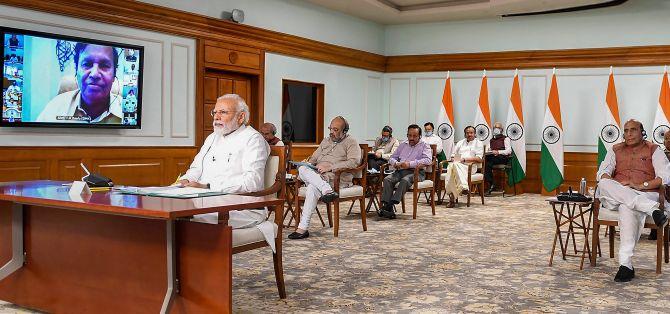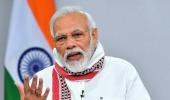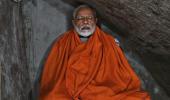Nivedita Mookerji goes in search of the elusive war room to track and respond to the coronavirus threat.

The Trump administration is battling coronavirus without a war room, the Los Angeles Times wrote a few days ago. That perhaps is the only similarity that India shares with the US on COVID-19, thankfully.
But why not have a war room that is the core of all decision-making to not only contain the spread of the virus but also address all issues central to the crisis?
Or are there multiple war rooms in the government dealing with the dynamic scenario?
Many senior officials across ministries didn't want to respond to that question while pointing out that international models didn't necessarily work in India.
Some others were certain that it is the Union health ministry which is the war room at a time when the country is facing such an extraordinary situation.
Then there were those who spoke of the 11 empowered committees and that each one of them should be seen as a war room during the outbreak.
A group of ministers headed by Defence Minister Rajnath Singh was also named among the power centres and therefore equivalent to a war room.
Don't forget Cabinet Secretary Rajiv Gauba, who holds multiple meetings to assess the progress reports and chalk out the line of action for various ministries, according to one of the guarded officials when asked about the COVID-19 war room.
Around that time, after Lockdown1.0 was announced, Gauba firmly responded to media reports on a possible extension of the nationwide lockdown. In a statement on March 30, he said there was no plan to extend the lockdown. There was no reason to mistrust his words if he really was occupying the COVID-19 war room.
A fortnight later, Prime Minister Narendra Damodardas Modi in an address to the nation announced Lockdown 2.0, extending the curbs by another 19 days with limited relaxations.
So the search for the real war room, and also the commander, continued.
The National Disaster Management Authority, which is chaired by the PM but comes under the Union home ministry, too was mentioned half-heartedly as a worthy candidate. Well, NDMA officials are members in the empowered committees, but they would have a limited role in handling the COVID-19 crisis, yet another official clarified.
Determined to get a fix on this, the health ministry seemed like the best bet. Here, unanswered phone calls and messages greet you non-stop. Obviously for good reason, as anybody who matters here is busy tackling the pandemic.
Health Minister Harsh Vardhan, the man of the moment, is mostly not in his 348-A room at Nirman Bhawan these days, and can be found in the large conference room nearby. He and his top team of officials have been in back-to-back videoconference meetings with state chief secretaries and other health experts ever since the crisis began.
Health Secretary Preeti Sudan, a 1983 batch Andhra cadre IAS officer, should ideally be the key person handling the COVID-19 war room, according to a former bureaucrat with experience in this ministry.
Sudan, set to superannuate end of this month unless her term is extended, is hardly seen at press briefings or on TV shows.
Another Andhra cadre IAS officer, Lav Agarwal, one of the many joint secretaries in the health ministry, is the face all TV viewers are familiar with. He is the one meeting the press at 4 pm daily, taking questions and giving answers to a lot of them -- our parallel to New York Governor Andrew Cuomo who has made CNN more watchable with his daily analysis on COVID-19 with a generous sprinkling of philosophy and empathy.
To a question on the options before non-Covid-19 patients, Agarwal had recently suggested telemedicine. He may have lost some loyal viewers that day, but he remains grounded and in control of things. But clearly the COVID-19 war room had to be bigger in scope.
Someone in the know almost made a chart of the line of instruction during COVID-19 and who reports to which committee. Beyond the empowered committees reporting to the COVID-19 group of ministers and the Cabinet secretary coordinating with all ministries and states, he pointed to the 1972 batch IAS officer from the Gujarat cadre -- P K Mishra, principal secretary to the PM, as a key person handling the COVID-19 crisis.
Mishra's meetings with the empowered committees have not got as much coverage as Agarwal's 4 pm briefings. But this PMO man, who got an award from the United Nations Office for Disaster Risk Reduction last year for his work in the area, is a war room contender.
But it is not Mishra alone. It is the entire PMO tracking COVID-19.
In fact, all 11 empowered committees have PMO officials as members.
In all, there are 18 PMO officials sitting on 11 committees. That may hold an answer to the war room question.











